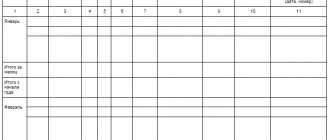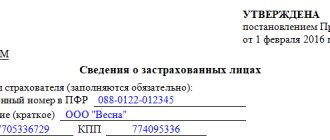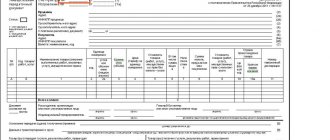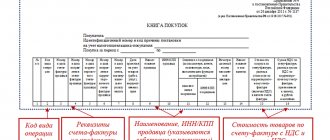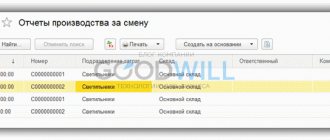Buying currency
One way to provide a business trip employee with currency is to purchase it from a bank.
Only citizens can purchase cash currency without restrictions. Organizations do not have such a right - they must conduct all currency transactions through their bank accounts. This procedure is established by paragraph 2 of Article 14 of the Law of December 10, 2003 No. 173-FZ and explained in the letter of the Bank of Russia dated March 22, 2005 No. 36-3/526.
Advice: To provide money for an employee traveling abroad, give him rubles on account and instruct him to buy the currency himself. Upon returning from a business trip abroad, he will have to sell any unused currency (if there is any left) and hand over the proceeds to the cashier.
In addition to efficiency, this method of issuing an advance for a business trip abroad is convenient because there will be no exchange rate differences in accounting. However, due to fluctuations in the commercial exchange rate of the currency on the date of its purchase and sale, the organization may incur additional costs.
The commercial rate of the currency on the date of sale of its balance may be less than the commercial rate on the date of its purchase by the employee. In this case, the total amount of travel expenses may exceed the amount of the advance payment issued.
The posted employee must be reimbursed for all expenses he incurred, with the permission of the administration (Article 168 of the Labor Code of the Russian Federation). Therefore, he will have to compensate for the existing overexpenditure.
In a collective agreement or in an order for sending someone on a business trip abroad, it is necessary to determine the conditions for payment of compensation. For example, you can indicate that if the official foreign exchange rate decreases, settlements with the traveler are carried out at the commercial rate on the date of issuance of the advance and on the date of approval of the advance report. Such a clause will save the employee from having to pay off the overspending using personal money.
Business trip abroad: if you have questions, we provide answers
In the current legislation, many issues related to foreign business trips are either not clearly stated or not regulated at all. In this regard, accountants have questions in practice. Using a cross-cutting example, we will tell you how to correctly process all settlements with an employee and take into account the resulting exchange rate differences on a foreign business trip in accounting and tax accounting, as well as for the purpose of calculating personal income tax.
Advance for a business trip: rubles or foreign currency?
When sending an employee on a business trip abroad, he needs to be given a cash advance to pay for travel expenses and rental accommodation and additional expenses associated with living outside his place of permanent residence (clause 10 of the Regulations on the specifics of sending employees on business trips, approved by the Decree of the Government of the Russian Federation dated 13.10.2008 No. 749, hereinafter referred to as the Regulations on Business Travel). But in what currency should it be?
It follows from paragraph 16 of the Business Travel Regulations that an advance on a foreign business trip can be issued in foreign currency in compliance with the requirements established by Federal Law No. 173-FZ of December 10, 2003 “On Currency Regulation and Currency Control” (hereinafter referred to as the Currency Regulation Law) . This law allows for currency transactions between residents “for payment and (or) reimbursement of expenses of an individual associated with a business trip outside the territory of the Russian Federation and repayment of unspent advance issued in connection with such a business trip” (subclause 9, clause 1, article 9 Law on Currency Regulation).
In letter dated July 30, 2007 No. 36-3/1381, the Bank of Russia explained that this provision gives the employer the right to issue funds to the employee in cash foreign currency through the cash register. And such issuance will not contradict the requirements of the Currency Regulation Law. The Presidium of the Supreme Arbitration Court of the Russian Federation adheres to the same position (resolution No. 10840/07 dated March 18, 2008).
Thus, the company has the right to issue cash currency to its employee sent on a foreign business trip. However, you need to take into account that:
1) foreign exchange transactions are carried out by resident legal entities only through foreign currency bank accounts (clause 2 of article 14 of the Law on Currency Regulation);
2) banks' exchange offices sell cash foreign currency only to individuals.
This follows from the provisions of the Bank of Russia instruction dated September 16, 2010 No. 136-I “On the procedure for authorized banks (branches) to carry out certain types of banking transactions with cash foreign currency and transactions with checks (including traveler’s checks), the nominal value of which is indicated in foreign currency. currency, with the participation of individuals."
Therefore, a company can issue an advance in foreign currency to an employee from the cash register only if it has a foreign currency account. If there is no such account, the advance is paid in rubles, and the employee himself exchanges the issued rubles for foreign currency.
Let's consider how settlements are made with an employee when issuing an advance in rubles and in foreign currency.
We issue currency
Let’s say a company sends an employee on a business trip abroad from July 7 to July 9, 2014. To issue an advance for the business trip, she received 1,000 euros from the bank on July 4.
The question arises: how to properly register the receipt and issuance of cash currency? After all, the procedure for conducting cash transactions established by the Directive of the Bank of Russia dated March 11, 2014 No. 3210-U applies only to transactions with banknotes and coins of the Bank of Russia. This is directly stated in paragraph 1 of this document. A special procedure for cash transactions with cash foreign currency is not defined by current legislation.
Explanations on this matter are contained in the letter of the Bank of Russia dated May 16, 2001 “Generalization of the practice of applying Bank of Russia regulations on currency regulation issues.” It says that the company can reflect transactions for the issuance and acceptance of cash foreign currency by analogy with the procedure for accounting for ruble cash transactions. In this case, such accounting must be carried out in a separate cash book.
Cash documents
So, transactions with cash currency are carried out by analogy with ruble funds. That is, when cash is deposited into the cash register, a cash receipt order must be issued. According to paragraphs 2 and 3 of Art. 12 of the Federal Law of December 6, 2011 No. 402-FZ “On Accounting” (hereinafter referred to as the Law on Accounting), monetary measurement of accounting items is carried out in the currency of the Russian Federation, and the cost of accounting items expressed in foreign currency is subject to conversion into rubles. Therefore, in the cash receipt order you must indicate the amount received in foreign currency and its equivalent in rubles, calculated at the Bank of Russia exchange rate on the date of the transaction. Note that the currency cash book must be prepared in a similar manner.
In the cash receipt order, the form of which was approved by Decree of the State Statistics Committee of Russia dated August 18, 1998 No. 88 and which must be used when carrying out ruble cash transactions (clause 4.1 of the Bank of Russia Directive dated March 11, 2014 No. 3210-U), lines are provided only for reflecting amounts in currency of the Russian Federation. But the company can develop and approve its own form of receipt order for cash transactions in foreign currency.
After all, only the forms established by authorized bodies in accordance with and on the basis of federal laws continue to be mandatory (information of the Ministry of Finance of Russia No. PZ-10/2012). But there are no such forms for cash transactions with cash foreign currency (they are only available for ruble cash transactions). Therefore, the company has the right to develop and approve its own forms of cash documents for accounting for transactions with cash currency (clause 4 of article 9 of the Accounting Law).
Let's return to our example. As of July 4, 2014, the euro exchange rate against the ruble was 46.6863 rubles. Consequently, in the receipt order issued when depositing cash currency received from the bank into the cash desk, two amounts must be indicated: 1000 euros and 46686.3 rubles.
On the same day, the currency was issued on account to an employee sent on a foreign business trip. These figures must also be indicated in the cash receipt order for the issuance of accountable amounts (1,000 euros and 46,686.3 rubles).
In accounting, these transactions are reflected in the following entries:
Debit 50 Credit 52
— 46686.3 rub. (1000 euros) - currency received from the bank;
Debit 71 Credit 50
— 46686.3 rub. (1000 euros) - currency issued to the employee for reporting.
Advance report
Upon returning from a business trip, the employee must, within three days, submit an advance report on the amounts spent and make a final payment for the cash advance issued to him before leaving for the business trip for travel expenses (clause 26 of the Business Travel Regulations).
The unified form of the advance report was approved by Decree of the State Statistics Committee of Russia dated August 1, 2001 No. 55. But the company is not obliged to use this form, since its mandatory use is currently not established by any legislative act. Therefore, the company has the right to develop and approve its own form of advance report.
The advance report is the basis for recognizing travel expenses in both accounting and tax accounting (clause 16 of PBU 10/99 “Organizational Expenses”, subclause 5 of clause 7 of Article 272 of the Tax Code of the Russian Federation). Since the employee made expenses in foreign currency, and accounting is kept in rubles, in the advance report all the employee’s travel expenses (travel, accommodation, daily allowance, etc.) must be converted into rubles by the accountant. But at what rate should foreign exchange expenses and the advance payment be reflected in it? To understand this, you need to refer to the rules of tax and accounting legislation.
Expenses in tax accounting
The procedure for recognizing expenses in tax accounting using the accrual method is defined in Art. 272 of the Tax Code of the Russian Federation. It says that expenses expressed in foreign currency are recalculated for tax purposes into rubles at the official rate established by the Bank of Russia on the date of recognition of the corresponding expense. And in the case of transfer of an advance, expenses expressed in foreign currency must be converted into rubles at the official rate established by the Bank of Russia on the date of transfer of the advance in the part attributable to the advance (clause 10 of Article 272 of the Tax Code of the Russian Federation).
At first glance, it seems that since the employee was given an advance before the business trip and all expenses were incurred at his expense, travel expenses should be recognized at the rate on the date the advance was issued. This conclusion follows from the provisions of paragraph 11 of Art. 250 and similar 5 p. 1 art. 265 of the Tax Code of the Russian Federation, according to which advances issued and received in foreign currency are not recalculated.
However, the Ministry of Finance of Russia, in letter dated July 30, 2010 No. 03-03-06/2/136, explained that the provisions of paragraph 11 of Art. 250 and similar 5 p. 1 art. 265 of the Tax Code of the Russian Federation, in the part establishing that advances received (issued) are not revalued for profit tax purposes, regulate relations associated with the recalculation of advance payment amounts when selling (purchasing) goods, works, services, property rights. That is, financiers do not consider amounts given to a posted worker on account as an advance.
It is difficult to argue with such a conclusion. After all, an advance is an advance payment for something. But by giving an employee money on account, the company does not pay anything or anyone in advance. She simply hands over the money from the cash register to the employee, and he will have to report on what he spent it on. That is, when issuing money, the company does not even know what specific services, from whom and how (by prepayment or upon delivery) the employee will purchase for this money. She only learns about this from his expense report. Consequently, the company’s taking into account the services provided to the employee on a business trip will occur after they have been provided, at the time of approval of the advance report. Therefore, the cost of a business trip, based on clause 10 of Art. 272 of the Tax Code of the Russian Federation, must be reflected in expenses at the exchange rate on the day of approval of the advance report (letter of the Ministry of Finance of Russia dated 06.06.2011 No. 03-03-06/1/324).
Expenses in accounting
Paragraph 6 of PBU 3/2006 “Accounting for assets and liabilities, the value of which is expressed in foreign currency” states that for accounting purposes, conversion into rubles is carried out at the rate prevailing on the date of the transaction in foreign currency. The list of dates for individual transactions in foreign currency is given in the appendix to PBU 3/2006. Thus, for expenses related to foreign business trips, the currency is recalculated on the date of approval of the advance report.
Thus, in accounting, business trip expenses in foreign currency are recognized in the same way as in tax accounting.
This means that in the advance report amounts in foreign currency are reflected at the exchange rate valid on the date of its approval.
Let's assume that the report submitted by the employee was approved on July 10th. The euro exchange rate for this day is 46.4146 rubles. From the documents confirming the expenses it follows that during the business trip he spent 900 euros, which in rubles is 41,773.14 rubles. Let us remind you that before the business trip he received 1000 euros for the report.
The advance report must reflect:
Advance received - 46414.6 rubles. (1000 euros).
Travel expenses - 41,773.14 rubles. (900 euros).
Balance - 4641.46 rubles. (100 euro).
Exchange differences
In the example we are considering, on the date of approval of the advance report, there was a revaluation of the amount issued to the employee for the report (1000 euros). On the date of its issuance for reporting, it amounted to 46,686.3 rubles in rubles. (1000 euros x 46.6863 rubles), and on the date of approval of the advance report - 46414.6 rubles. (1000 euros x 46.4146 rubles). Thus, due to changes in the euro exchange rate, an exchange rate difference was formed in the amount of 271.7 rubles.
In tax accounting, exchange rate differences can be positive and negative. Positive differences lead to income for the company (clause 11, article 250 of the Tax Code of the Russian Federation), and negative differences are taken into account as expenses (subclause 5, clause 1, article 265 of the Tax Code of the Russian Federation). A positive difference appears when property and claims are revalued in foreign currency and liabilities are devalued (clause 11, Article 250 of the Tax Code of the Russian Federation), and a negative difference appears when property and claims are revalued in foreign currency and liabilities are revalued (subclause 5, clause 1, Article 265 of the Tax Code of the Russian Federation). .
In our case, there was a markdown of the company's claims on the employee for the accountable amounts issued to him. Due to the difference in exchange rates, the amount of the claim (accounts receivable) decreased by 271.7 rubles. This means that this difference is negative, and for income tax purposes it should be reflected as part of non-operating expenses (subclause 5, clause 1, article 265 of the Tax Code of the Russian Federation).
In accounting, this exchange rate difference is taken into account as part of other expenses (clause 13 of PBU 3/2006, clause 11 of PBU 10/99):
Debit 91-2 Credit 71
— 271.7 rub. — negative exchange rate difference due to the revaluation of the currency issued against the report for travel expenses.
Exchange rate differences may also arise when the employee returns the balance of the unspent advance.
Let's say an employee returned the balance in the amount of 100 euros not on the day the advance report was approved, but on the next day (July 11). The euro exchange rate for this day is 46.1649 rubles.
According to the approved advance report, he has a debt in the amount of 4,641.46 rubles. (100 euro). As of the day of return, 100 euros cost 4,616.49 rubles. That is, there was a markdown of the company’s demand for the return of the unused balance of accountable amounts. This means that the exchange rate difference is 24.97 rubles. is negative, and it must be taken into account as part of non-operating expenses (letter of the Ministry of Finance of Russia dated 04/21/2014 No. 03-03-06/1/18259).
In accounting, this is reflected by the following entry:
Debit 91-2 Credit 71
— 24.97 rub. — exchange rate difference from the revaluation of the balance of the unused advance on the date of its return.
Advance in rubles
Now let’s look at how settlements with an employee for travel expenses will be reflected if the advance was issued in rubles.
For comparability, let’s take the same conditions: the company sends an employee on a foreign business trip from July 7 to July 9, 2014 and gives him 46,686.3 rubles from the cash register on July 4 for a report. (at the rate of 1000 euros at the Bank of Russia exchange rate on the day the advance was issued).
Let’s assume that with the rubles issued, the employee was able to buy only 990 euros at the bank’s exchange office (the exchange rate was 47.15 rubles per euro, which is confirmed by a certificate of purchase of foreign currency issued by the exchange office). On July 10, he submitted an advance report, from which it follows that 900 euros were spent during the business trip.
But at what rate should this amount be converted into rubles?
In a letter dated March 31, 2011 No. 03-03-06/1/193, the Russian Ministry of Finance explained that the organization’s expenses for travel expenses in this case should be determined at the rate indicated in the certificate of purchase of foreign currency, which is issued when purchasing currency at an exchange office . This is explained by the fact that, based on the provisions of Art. 168 of the Labor Code of the Russian Federation, the employer must compensate the employee for his actual business trip expenses, namely, the amount in rubles that he spent to purchase the amount of currency spent. Financiers also told us what exchange rate to take for conversion if the employee does not have a certificate of purchase of foreign currency. In this case, the exchange rate on the date of approval of the expense report is used to recalculate foreign exchange expenses.
Let us note that the Federal Tax Service of Russia adheres to the same position (letter dated March 21, 2011 No. KE-4-3/4408).
So, you need to take into account the rate at which the employee bought the currency.
In this case, the advance report is filled out as follows:
Advance received - 46686.3 rubles.
Travel expenses - 42,435 rubles. (900 euros x 47.15 rubles).
Balance - 4251.3 rubles.
Please note: since the employee received an advance in rubles, he must return the unused balance in rubles in the amount indicated in the advance report. But he still had a balance of 90 euros in his hands (after all, before the business trip, he bought 990 euros with the advance payment issued, but spent only 900 euros). He must exchange this balance for rubles. Let's say the exchange rate was 45.5 rubles. per euro. That is, the employee will receive only 4,095 rubles upon exchange. But according to the advance report, he must return 4251.3 rubles to the cashier. The employee's losses will amount to 156.3 rubles. Since these losses were incurred in connection with a business trip, the employer, by virtue of the provisions of Art. 168 of the Labor Code of the Russian Federation is obliged to compensate the employee for them.
In the above-mentioned letters, financiers and tax specialists indicated that when assessing the amount of expenses for foreign business trips accepted for the purposes of calculating income tax, one should proceed from the fact that business trip expenses that meet the requirements of paragraph 1 of Art. 252 of the Tax Code of the Russian Federation, will be the amounts that are subject to the employee for reimbursement of travel expenses in accordance with the labor legislation of the Russian Federation (letter of the Ministry of Finance of Russia dated March 31, 2011 No. 03-03-06/1/193, Federal Tax Service of Russia dated March 21, 2011 No. KE-4 -3/4408). Based on these clarifications, the company can take into account the amount of compensation for losses on currency conversion as part of travel expenses.
In accounting, mutual settlements with an employee are reflected in the following entries:
Debit 71 Credit 50
— 46686.3 rub. — an advance was issued for a foreign business trip (in rubles);
Debit 26 Credit 71
— 42,435 rub. — travel expenses are taken into account;
Debit 50 Credit 71
— 4095 rub. — the employee returned the unused balance of the advance;
Debit 26 Credit 71
— 156.3 rub. — expenses for currency conversion when returning the unused balance of the advance.
Personal income tax
In some cases, when making payments to an employee on a foreign business trip, income subject to personal income tax may arise. This applies to daily allowances.
According to paragraph 3 of Art. 217 of the Tax Code of the Russian Federation, daily allowances in the amount of no more than 700 rubles are not subject to personal income tax. for each day of a business trip in the Russian Federation and no more than 2,500 rubles. for each day you are on a business trip abroad. The specific amount of daily allowance is determined by a collective agreement or a local regulatory act of the organization (Article 168 of the Labor Code of the Russian Federation).
If daily allowances are issued in rubles, there will be no problems with personal income tax. After all, you can immediately see whether the amount issued exceeds the established threshold or not. But when daily allowances are issued in foreign currency, the question arises at what rate they should be recalculated for personal income tax purposes.
In paragraph 5 of Art. 210 of the Tax Code of the Russian Federation states that income expressed in foreign currency is recalculated into rubles at the official exchange rate of the Bank of Russia established on the date of actual receipt of said income. But which day is considered the date of receipt of income in the form of daily allowances: the day of their issuance or the day of approval of the advance report?
Previously, the Russian Ministry of Finance believed that an employee’s income accrues when he is paid daily allowance. The financiers justified their position by the fact that, according to subparagraph. 1 clause 1 art. 223 of the Tax Code of the Russian Federation on income in cash, the date of their actual receipt is the day of payment. Therefore, in order to determine income in the form of an amount of funds exceeding the daily allowance standards established by clause 3 of Art. 217 of the Tax Code of the Russian Federation, when issuing daily allowances in foreign currency, it is necessary to apply the rate in effect on the date of their payment (letter of the Ministry of Finance of Russia dated February 1, 2008 No. 03-04-06-01/27). A similar conclusion is contained in the letter of the Ministry of Finance of Russia dated June 25, 2010 No. 03-04-06/6-135.
But at present, financial department specialists have changed their position regarding the moment when income arises when receiving daily allowances. The letter of the Ministry of Finance of Russia dated January 14, 2013 No. 03-04-06/4-5 states that income for personal income tax purposes is recognized as economic benefit in cash or in kind, taken into account if it is possible to evaluate it and to the extent that such benefit can be estimate, determined in accordance with Chapter 23 of the Tax Code of the Russian Federation (Article 41 of the Tax Code of the Russian Federation). Funds issued to an employee before a business trip may not be used in full. Conversely, an employee may spend more money on a business trip than was issued to him. Therefore, funds issued to an employee on account when sent on a business trip cannot be considered as an economic benefit until the employee returns from the business trip and the head of the organization approves the submitted advance report based on the actual time spent on the business trip and available supporting documents. Based on this, financiers now believe that income in the form of daily allowances should be determined on the date of approval of the advance report.
From these clarifications it follows that when paying daily allowances in foreign currency, they must be recalculated into rubles for personal income tax purposes on the date of approval of the advance report.
Another question that concerns accountants is the following: does an employee have income subject to personal income tax if he paid part of the business trip expenses in foreign currency at his own expense and the company reimburses him for these expenses not on the day the advance report is approved?
In a letter dated 04/21/2014 No. 03-03-06/1/18259, the Russian Ministry of Finance explained that in this case an exchange rate difference arises due to different exchange rates on the date of approval of the employee’s advance report and the date of the actual return of funds to him in foreign currency. Such exchange rate differences are in the nature of material benefits. However, Art. 212 of the Tax Code of the Russian Federation contains an exhaustive list of cases when material benefits are recognized as income for the purposes of collecting personal income tax. The difference between exchange rates on the date of approval of the employee’s advance report and the date of the actual return of funds to him in foreign currency is not indicated in this list. Therefore, such exchange rate difference cannot be recognized as income subject to personal income tax.
Advance report
The advance report must be prepared in foreign currency only if the currency was issued for the report. This is stated in the instructions approved by Resolution of the State Statistics Committee of Russia dated August 1, 2001 No. 55.
When issuing an advance in Russian currency, all travel expenses of the employee will be ruble expenses of the organization. However, the amount of these expenses can be recognized in accounting only at the time of approval of the expense report.
Attention: the organization does not have the right to issue an advance at the expense of funds received at the cash desk from citizens as payments in favor of other persons (clause 2 of the Bank of Russia Directive No. 3073-U dated October 7, 2013). This rule applies, in particular, to amounts received under intermediary agreements (commission trading, payment for services in favor of mobile operators).
Income tax
When calculating your income tax, take into account the amount of travel expenses as follows. If the employee can document the fact of purchasing currency, then take into account the costs in the amount of actual business trip costs incurred at the exchange rate indicated in the certificate of currency purchase. If an employee cannot provide a certificate of currency purchase, for tax purposes, take into account the travel expenses actually incurred by the employee at the exchange rate on the date of approval of the advance report. In both cases, recognize expenses on the date of approval of the advance report (subclause 5, clause 7, article 272 of the Tax Code of the Russian Federation).
Similar explanations are contained in letters of the Ministry of Finance of Russia dated June 15, 2011 No. 03-03-06/1/347 and the Federal Tax Service of Russia dated March 21, 2011 No. KE-4-3/4408.
Accounting and Taxation
After the employee returns from a business trip, he is required to provide an advance report within three days. In it, he must indicate his expenses in the currency in which he made them. The accountant will independently convert all these transactions into rubles.
When translated into accounting entries, amounts that are travel expenses are translated into rubles according to the rate that was established by the Central Bank of the Russian Federation on the day the advance report was approved. This is necessary to simplify taxation.
This is due to the fact that taxation is carried out on a cash basis, that is, expenses can only be recognized as such after they have actually been paid. At the same time, only documented and economically justified operations are considered both expenses and income.

